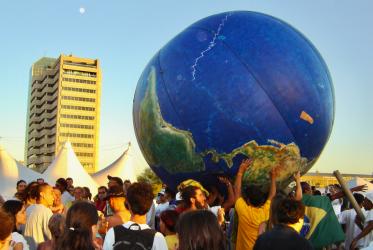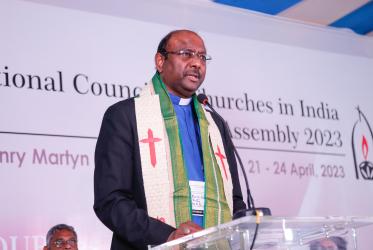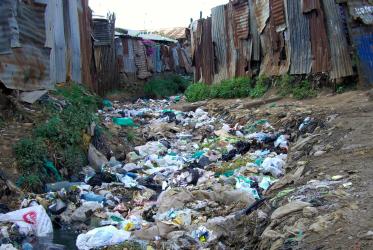Displaying 1 - 17 of 17
WCC to share key insights at World Social Forum
09 February 2024
On World Toilet Day, sanitation is “an issue of justice”
16 November 2020
Church of South India eco-ministry featured on UNESCO website
17 February 2020
During Lent, a “carbon fast” can honour God’s creation
09 February 2017
Momentum builds for ban on nuclear weapons
16 December 2014











